bill
Latest

California advances bill offering protections to gig economy workers
Gig economy companies like Uber and Lyft have fought hard to avoid treating workers as full-fledged employees, but they might not have much choice in California before long. The state Assembly has passed a bill, AB5, that would require businesses to prove that someone is an independent contractor and thus doesn't merit employee benefits. They would have to show that a worker isn't controlled by the company, isn't performing tasks at the core of the company's business and operates their own independent business. If not, they'd have to be treated as employees and receive benefits like overtime pay, minimum wages, health care and parental leave.

Maine passes bill requiring ISPs to ask permission before selling data
The current federal government might not be keen on privacy rules for internet providers, but Maine certainly is. The state's Senate has passed a bill that requires consent before ISPs can sell or offer access to their customers' private data, paralleling an earlier approval in the state House. It just needs Governor Mills' approval to become law.

Anti-robocall bill passes almost unanimously in the Senate
Senators have overwhelmingly backed a bill to combat robocalls. They voted 97-1 to pass the Telephone Robocall Abuse Criminal Enforcement and Deterrence Act, which would empower law enforcement to tackle robocallers, and bump up civil penalties to as much as $10,000 per call.
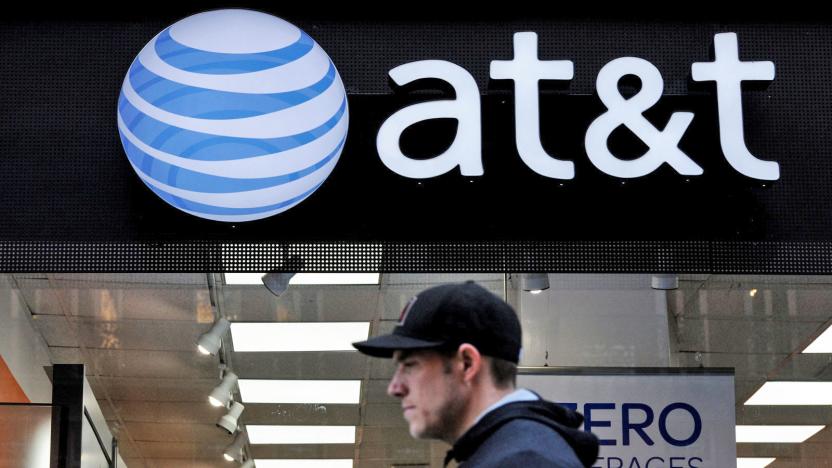
AT&T just made it possible to pay your phone bill with bitcoin
Have some spare bitcoin kicking around? You can put it toward your phone service. AT&T says it has become the first big US wireless carrier to accept cryptocurrency for online phone bill payments. Choose the BitPay option at MyAT&T and you can cover your bill with bitcoin instead of conventional funds. You can't use this in-store, alas, but it could make sense if you'd rather save old-school money for other purposes.

Senators propose legislation to protect your phone at the border
For years, US border agents have been demanding access to digital devices as people pass into and out of the country. The practice has raised red flags and lawsuits, and the number of searches has spiked under the Trump Administration. Last month, the ACLU charged federal agents with wielding "near-unfettered authority" to search phones, PCs and other devices. Yesterday, Senators Ron Wyden (D-OR) and Rand Paul (R-KY) introduced a bill that would require agents to obtain a warrant or written consent before they crack open digital devices and snag users' data.

Senators reintroduce bill to improve AI adoption in government
US senators aren't giving up on their dream of promoting AI use in government. A bipartisan group including Cory Gardner, Kamala Harris, Rob Portman and Brian Schatz has reintroduced the AI in Government Act in a bid to foster the adoption of AI in the federal government. As before, it would task government branches with exploring and implementing the use of the technology where possible.

Senate bill would ban paid loot boxes in games aimed at kids
Efforts to crack down on loot boxes in the US might be underway in earnest. Senator Josh Hawley has introduced a bill, the Protecting Children from Abusive Games Act, that would bar games from including paid loot boxes, pay-to-win mechanics and other potentially exploitative elements in games that are either aimed at kids under 18 or knowingly let those children make microtransactions. These practices spur "compulsive habits," Hawley said, and developers shouldn't be permitted to "monetize addiction."
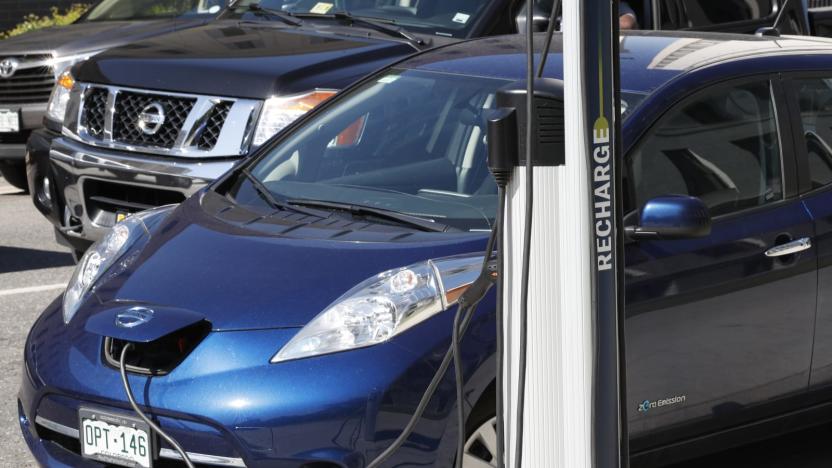
Colorado hopes to fine gas car drivers who park at EV stations
It's already hard enough to find an electric car charging station, but it's worse when you have to deal with passive-aggressive types (or just inconsiderate folk) who park their gas-based cars in those stations. Colorado, at least, wants to do something about it. The state's House of Representatives recently passed a bill that would fine drivers $150, plus a $32 surcharge, for parking a combustion engine car in a space reserved for EVs and plug-in hybrids. It would deliver a similar punishment for EV drivers who leave their car unplugged at parking lot chargers for more than 30 minutes, with exceptions for lodging, airports and overnight.
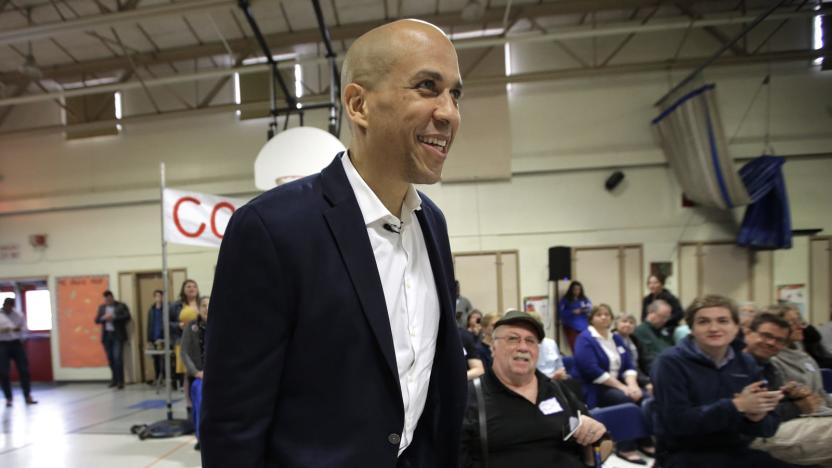
Senate bill would make tech companies test algorithms for bias
It's well established that algorithms can exhibit bias, however inadvertently, and a trio of US politicians believe they can do something about it. Senators Cory Booker, Yvette Clarke and Ron Wyden have introduced an Algorithmic Accountability Act that would require larger companies to test their algorithms and fix anything "inaccurate, unfair, biased or discriminatory." The move would also ask them to study how their systems protect personal data,and would let the FTC create regulations mandating impact studies for "highly sensitive" automated systems.
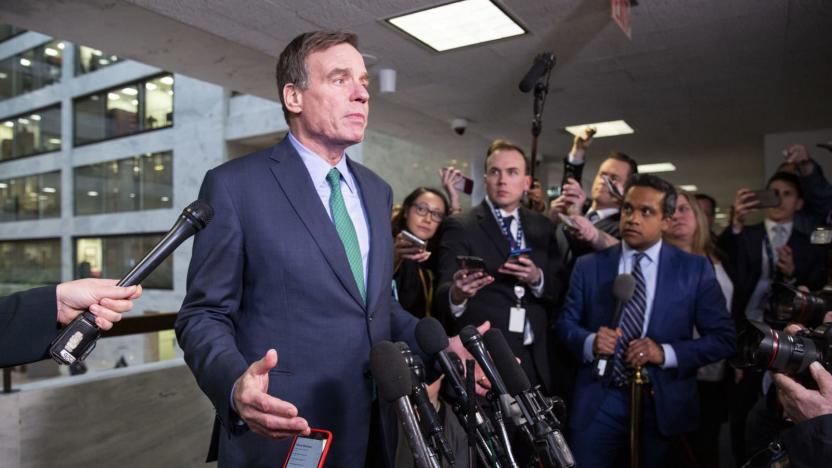
Senate bill would ban deceptive data collection by internet giants
If American legislators have their way, tech companies will have to face more than negative publicity if they collect your data in a less-than-sincere fashion. Senators Mark Warner and Deb Fischer have introduced a bill, the DETOUR Act (Deceptive Experiences To Online Users Reduction), that would bar internet firms with over 100 million monthly active users from tricking you into handing over personal data. Companies wouldn't be allowed to develop interfaces with the "substantial effect" of preventing you from making an informed decision. They also wouldn't be allowed to divide users into groups for experiments without consent, and couldn't develop compulsive experiences targeted at kids under 13 years old (such as auto-playing videos).

Face Recognition Privacy Act aims to protect your identifying info
US Senators Roy Blunt and Brian Schatz want to protect people's facial recognition data and make it much harder to sell now that information is treated as currency. The lawmakers have introduced the bipartisan Commercial Facial Recognition Privacy Act of 2019, which prohibits companies from collecting and resharing face data for identifying or tracking purposes without people's consent.

Senate bill proposes stricter privacy controls for children
Some politicians don't believe the Children's Online Privacy Protection Act does enough to protect kids in the modern era, and they're hoping to update it accordingly. Senators Ed Markey and Josh Hawley have introduced a bill that would amend COPPA with stricter controls on kids' data. It would ban ads targeted at kids, and would require an "Eraser Button" that would let kids and parents wipe data. The measure would still ban the collection of personal data for kids under 13 without their parents' consent, but it would also ban collecting data from the 13- to 15-year-old crowd without the user's permission.

House Democrats will introduce bill to reinstate net neutrality rules
Now that the Democrats have the majority in the US House of Representatives, net neutrality is back on the table. House Speaker Nancy Pelosi has revealed that Democrats will introduce a bill to restore Obama-era net neutrality rules on March 6th. They haven't detailed just what the legislation would include, but its not-so-subtle name (the Save the Internet Act) makes the bill's intentions clear.

California bill aims to strengthen data breach notification law
California might have more comprehensive data breach notification rules if a new bill becomes law. The golden state's Attorney General, Xavier Becerra, and Assemblymember Marc Levine want to require companies to notify customers if their passport numbers and biometric information have been compromised. According to Becerra's announcement, the massive Starwood Hotels data breach in 2018 prompted them to conjure up the proposal. That security breach affected as many as 500 million guests, with the hackers managing to steal around 327 million personal records, including passport numbers.

Texas bill would make it illegal to throttle data in disaster areas
The revelation that Verizon (Engadget's parent company) throttled California firefighters' data is prompting new legislation... in Texas. State Representative Bobby Guerra has submitted a bill that would make it illegal for wireless carriers to "impair or degrade" mobile data in declared disaster areas. In other words, a provider couldn't throttle any service in crisis-struck regions, for emergency crews or otherwise. It wouldn't preclude throttling in normal circumstances.

US bills would ban exports to Chinese telecoms that violate sanctions
American politicians want to crack down further on Chinese telecoms like Huawei and ZTE. Members of both the House of Representatives and the Senate have introduced bills that would order the President to impose export bans on Chinese telecoms found to violate US export and sanctions laws. Companies like Huawei and ZTE are a "growing threat to American national security," according to co-sponsor Rep. Mike Gallagher, and they should face the same punishment that ZTE faced before its reprieves.

US signs act that opens government data to the public into law
POTUS has signed a bill into law that includes the OPEN Government Data Act, following approvals (and amendments) from the Senate and then by the House of Representatives. The sweeping legislation is aimed at making public data released by the government easier to access via smartphones and other electronic devices. It essentially requires that federal agencies publish any "non-sensitive" info in a "machine-readable" format (meaning in a file type that a phone or laptop can process, rather than a raw data dump).

NYC lawmakers want to criminalize sending unwanted dick pics
While Apple's AirDrop feature makes it simple for people to share photos, videos and documents with each other, it unfortunately also makes it really easy for people to anonymously send unsolicited images to others nearby. The technology has opened up unsuspecting iPhone users to a practice now dubbed cyber-flashing, wherein someone with an Apple device can AirDrop an unsolicited nude photo to any other nearby Apple user with their AirDrop setting open to everyone. But lawmakers in New York City are now looking to criminalize cyber-flashing, making it punishable by a $1,000 fine or jail time.

The Senate is considering extending EV tax credits
As US senate majority leader Mitch McConnell debates making cuts to social security and medicare, Senator Dean Heller (R) of Nevada is hoping to keep electric car sales zipping forward with a new bill that would extend tax credits until 2022.
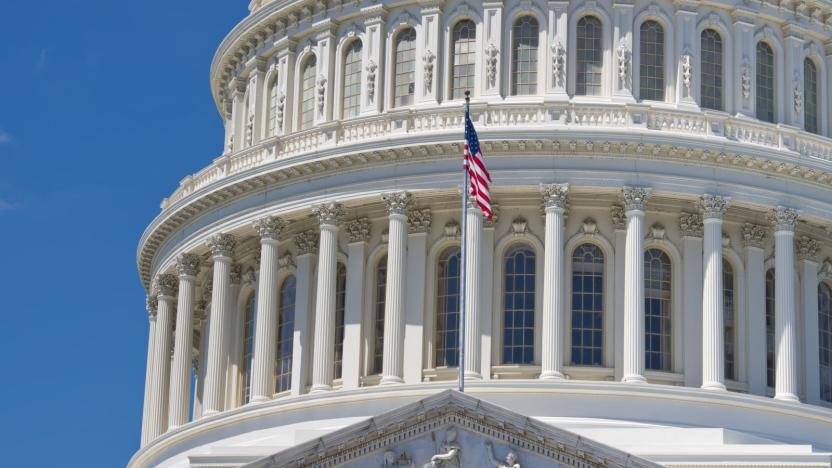
Senate bill would boost AI adoption in federal government
The US government is only dabbling in artificial intelligence at the moment. It might make a larger commitment before long, however. A bipartisan group of senators (Brian Schatz, Cory Gardner and Rob Portman) have introduced an AI in Government Act that would increase federal AI adoption by both including AI in data-related plans and supplying the resources to make those plans a reality. Thankfully, this isn't just a question of throwing money at the problem -- it would have multiple government organizations shift more attention to the emerging technology.





